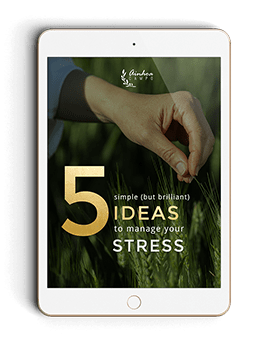Before you start reading this article, let me propose a very simple exercise.
Just out of curiosity, I would like you to go to the “Self Help” section on Amazon and look for the word “Self-esteem”.
Ready?
How many results has the powerful store produced?
There are generally more than 5,000 books with the word Self-esteem – either in the title or in the subtitle – in Amazon.
The most surprising thing of it all is that most of them will start by “scolding” you for going through life with a low self-esteem. And then they’ll go on to ensure their infallible method will trigger that quality that you apparently need to be “someone” in life.
Yes, the “self-esteem” business generates billions of dollars worldwide.
All those teachers, gurus, masters, etc. repeatedly teach you that without self-esteem you will never achieve success.
How do most of us react before these persistent words?
We constantly struggle to maintain our high self-esteem and live in horror at the possibility of making a mistake.
And when we make it, oh well! May the heavens protect us all!
Our only defence, really, is to focus our attention on the many things we do well, while mentally caressing our own ego until we forget that horrible episode.
But don’t you get the feeling that this strategy of “working” towards our own triumph is somewhat flawed? Don’t you think that there is an ingredient missing from this recipe?
I certainly feel so.
Our intuition is confirmed by a study published in the journal “Psychological science in the public interest“.
It seems that a high self-esteem does not predict better performance or greater success.
Yes, people with high self-esteem consider that their level of success exceeds that of others, but objectively, that’s not true.
A high level of self-esteem does not make you a more effective leader, a more attractive lover, a healthier person, nor does it make you more persuasive in the business world.
But if so many self-esteem gurus are wrong, and this quality (along with all the daily affirmations reminding you that you are “god’s gift to humanity”) is not the answer to all the problems, then what is?
Say hello to “Self-compassion”
In recent years a new school of thought and research has gathered strength based on the research by Juliana Breines and Serena Chen (University of Berkeley), who maintain that self-compassion is the key to being truly “great”.
Unlike the popular psychology on which the concept of self-esteem is based, “self-compassion” is born of a group of women who follow a rigorous scientific process.
Breines and Chen define self-compassion as the willingness to see our mistakes and deficiencies with kindness and understanding.
In other words, self-compassion is to accept the fact that to err is human.
When you accept a self-compassionate mentality in the face of difficulty, you don’t judge yourself harshly nor do you feel the need for “self-flattery” to protect your ego.
Many studies have shown that self-compassion leads to higher levels of personal and professional well-being, a more optimistic view of things, more happiness, and less anxiety and depression.
The difference between self-esteem and self-compassion doesn’t lie in the destination, but in how we deal with the ups and downs we find along the way.
And according to Breines and Chen’s studies, if your foundation is self-defeating, your chances of landing in that final destination are much greater.
What was the study about the self-pity of Breines and Chen?
Participants were asked to replicate a mistake they had earlier made throughout their lives, and to do so, first by adopting a perspective of self-compassion, and then a perspective of self-esteem.
For example, when reflecting on a personal weakness, they were asked to do the following:
“Imagine you are talking to yourself about this weakness in a compassionate and understanding way. What would you say? “
Another group was asked to focus on their self-esteem:
“Imagine that you are talking to yourself about this weakness comparing it with other positive qualities of yours. What would you say? “
People who perceived themselves through the filter of self-compassion were much more likely to see their weaknesses as something changing that motivated them to improve and to avoid making the same mistake again in the future.
It has also been shown that this type of attitude causes, in most cases, superior professional performance.
In another study, participants were presented with a test. Those who failed to overcome it for the first time, were given a second chance to improve their grades.
Those who had chosen “the filter” of self-compassion to rationalize their initial failure, studied 25% more, and scored higher in the second test than participants who focused on strengthening their self-esteem.
But why?
Why is self-compassion so powerful?
Self-compassion hides your ego, so you can face your flaws and weaknesses without fear, allowing you to get a realistic idea of your abilities and your actions, and identify what you should do differently next time.
If, on the other hand, your attention is focused on protecting your self-esteem, you could not afford to look at yourself with all honesty and recognize the need to improve because that would mean admitting your weaknesses and deficiencies, an action that usually generates feelings of anxiety and depression.
And how can you learn to do things right when you writhe in pain by admitting (even to yourself) that you’re wrong?
Because, there is no denying that one day or another, you’re going to screw up!
And possibly the next day too!
It’s an inescapable truth.
It’s part of your being: of your personal and of your professional being.
And that’s totally fine!
Because, with self-compassion, you will rise when you fall, you will shake it all off and go forward, having learned from your mistakes – without wallowing in misery or punishing yourself more than necessary.
So, the day you feel “meh” for any personal or professional reason, try to get started in the practice of self-compassion.
Do you need a helping hand?
Ainhoa Campo.
Get in touch and discover how Coaching can help you be a lot more self-compassionate with yourself.
Your first THIRTY MINUTE SESSION is FREE.
See you soon!



